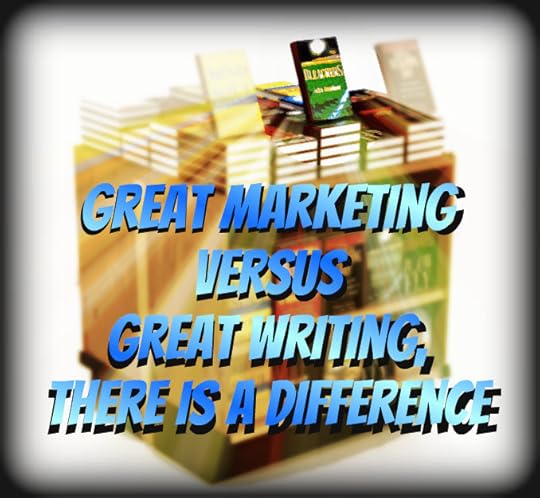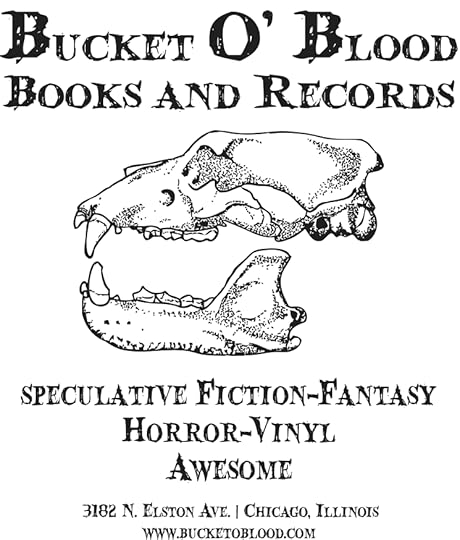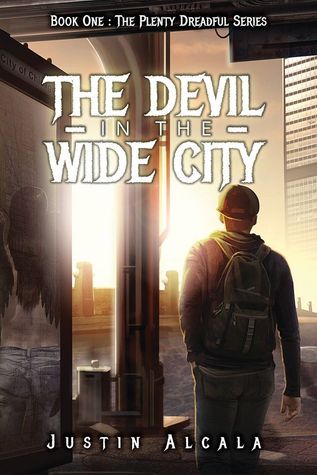Justin Alcala's Blog - Posts Tagged "writers"
Ghosts of the Past
Have you ever opened up some of your long forgotten poems, short stories or novels? Painful right? The document is probably littered with vague pronoun references, unnecessary shifts in tense and fused sentences. Even worse, there are sections of the story that don’t contribute to the plot, insignificant characters and mawkishly sentimental underlying messages.
If you’re like me, the first thing you do is plant your face in your hands (a.k.a. the “Face-palm”) and try not to cry. Afterwards, you stare at the Delete button, tempted to obliterate all proof that this story or poem was once yours. Finally, after waging a war with your conscience, you decide to live and let live, leaving the document alone, but lamenting about how terrible your writing once was.
But wait, that’s not fair. Your old work shouldn’t be some dark secret that needs to be hidden from the world. It should be a testimony of what you’ve accomplished. Not only did the “old you” put a lot of effort into that story, but the work is a reminder of who you as a writer once inspired to be. It’s a roadmap of your writing life.
Sometimes, we as writers are very hard on ourselves. We have to be because we’re constantly pursuing perfection. However, we forget that we didn’t just learn how to write overnight. There wasn’t some magical gift bestowed upon us by a divine being. No, we had to start somewhere and work at it, and those old documents are a symbol of that.
For me, once the shock wears off of how bad my writing once was, I realize how beautiful these works really are. Because behind the jungle of grammatical errors and turbulent plot hooks is a vision I once had. I see Justin Alcala, the writer who wanted to give readers a little scare with his horror stories. I see Justin Alcala, the yarn spinner who wanted to give a fresh perspective on legends and folklore. I see Justin Alcala, the young man who wanted to make people happy by telling great stories.
All too often, we authors get swept away by the power that comes with having your works published. I know I get a real kick out of talking to my publisher about cover art or sending new ideas to my editor. It’s fun to put your work onto bookshelves. But we can’t forget about the fundamentals. We need to remind ourselves why we started writing in the first place, and those old tales are just the thing. So the next time your dusting off an old manuscript, remember what those pages really mean. The words may tell a bad story, but the history of its creation is its own sort of autobiography.
If you’re like me, the first thing you do is plant your face in your hands (a.k.a. the “Face-palm”) and try not to cry. Afterwards, you stare at the Delete button, tempted to obliterate all proof that this story or poem was once yours. Finally, after waging a war with your conscience, you decide to live and let live, leaving the document alone, but lamenting about how terrible your writing once was.
But wait, that’s not fair. Your old work shouldn’t be some dark secret that needs to be hidden from the world. It should be a testimony of what you’ve accomplished. Not only did the “old you” put a lot of effort into that story, but the work is a reminder of who you as a writer once inspired to be. It’s a roadmap of your writing life.
Sometimes, we as writers are very hard on ourselves. We have to be because we’re constantly pursuing perfection. However, we forget that we didn’t just learn how to write overnight. There wasn’t some magical gift bestowed upon us by a divine being. No, we had to start somewhere and work at it, and those old documents are a symbol of that.
For me, once the shock wears off of how bad my writing once was, I realize how beautiful these works really are. Because behind the jungle of grammatical errors and turbulent plot hooks is a vision I once had. I see Justin Alcala, the writer who wanted to give readers a little scare with his horror stories. I see Justin Alcala, the yarn spinner who wanted to give a fresh perspective on legends and folklore. I see Justin Alcala, the young man who wanted to make people happy by telling great stories.
All too often, we authors get swept away by the power that comes with having your works published. I know I get a real kick out of talking to my publisher about cover art or sending new ideas to my editor. It’s fun to put your work onto bookshelves. But we can’t forget about the fundamentals. We need to remind ourselves why we started writing in the first place, and those old tales are just the thing. So the next time your dusting off an old manuscript, remember what those pages really mean. The words may tell a bad story, but the history of its creation is its own sort of autobiography.
Published on March 11, 2014 20:29
•
Tags:
author, justinalcala, readers, writers, writingtips
Great Marketing Versus Great Writing, There is a Difference

Have you ever bought a book because the display was beautifully crafted, there was a neat gift that came with your purchase or because it greeted you at the entrance of the bookstore? Have you ever purchased a book online because a search engine recommended it, perhaps a powerful description drew you in or a respected newspaper positively reviewed it? Now, have you ever picked up a lesser-known book by chance, and after reading it wondered why you haven’t heard more about it? If so, than like many readers, you’ve probably succumbed to the lure of business marketing at its finest.
Advertising, marketing, media promotions- believe it or not, every moment of our lives is affected by it. Commercials, online banners and product placement are all around us, covertly influencing your purchasing decisions. The writing world is no different. The best publishers are those who have the most influence over these favoring elements. Many people give into the beautiful cover or trending genre only to find that the pages between the bindings leave something to be desired. It’s how the world has been working for decades and you shouldn’t feel victimized if you were ever drawn into it. However, for book people, there is one service that we can do for readers and writers everywhere, and it is to not forget that there is epic plot, masterfully architected characters and brilliantly designed worlds waiting behind unheralded books as well.
I can still recall as a boy driving with my father in his rusty blue truck, a truck that I’m starting to believe that all eccentric fathers once owned, navigating through the streets of Chicago in order to pick up a new ironworking tool from some unknown manufacturer or the latest in entertainment technology (remember laser disks?). He wasn’t very vocal about it, but I strongly suspected that my dad always supported the under dog (side note: this made getting Nike shoes or the newest bike model a difficult chore). Eventually, as I grew older, I began to understand why he did what he did. You see, somewhere along the way, my father had learned…The Great Secret- the one that makes advertising firms and promotional companies shutter. He’d learned that just because something was popular, didn’t mean it was always the best.
Now before you start to build an image of me as a jaded small time author who is writing this article in hemp clothing with a computer made only from foraged scrap metal, let it be known that I’m neither speaking about myself nor am I a “down with the system” rebel. Personally, I write to write, and understand that I am to the book world what a monkey with symbols is to professional comedians. More importantly than that though, I understand why we go with popular books. It’s the same reason we rely on prevalent companies or products. Often, they’re tried and tested with dependable consumer satisfaction. Readers don’t want to spend twenty dollars and hours of their time reading a book that collapses at the end. They want something worthwhile that they can discuss with friends and family. All that I’m asking is for us to try to remain aware that when we are making book purchases, we aren’t letting publishers and sales teams blur the line between well-written and well-marketed works.
Consider this. In 1965, American writer John Williams wrote a modest novel called Stoner. The book received little praise during William’s life, and was out of print only shortly after its publication. Williams would die never knowing that he had created one of the most prolific and expertly composed novels of all time. That is until July 5th, 2013 when renowned British novelist Ian McEwan appealed to the public on the Today program hosted by Sarah Montague. After McEwan’s petition to readers, Stoner captured the imaginations of people everywhere, going on to become the 2013 novel of the year. Several other quieted authors and books have had similar late recognitions of greatness, from the revival of all of Irène Némirovsky’s works to William Lindsay Gresham’s novel, Nightmare Alley. These books and authors, some of the most excellent literary specimens of the century, were drowned out or forgotten during initial production.
Now consider this. Within the last decade several major publishers including Bantam and Random House have heavily marketed several of their books, using advanced copies and advertisement to push success. The titans of the publishing world forecasted that these novels would be the latest to break book-selling records across the world. Books like The Glass Books of the Dream Eaters by Gordon Dahlquist, Thirteen Moons by Charles Frazier, and Sacred Games by Vikram Chandra not only failed to live up to their expectations, but also were unable to recoup millions of dollars that were invested in promotional advertisement and initial prints.
So, as you can see, not all big name books are brilliant, nor are all unknown authors deserving of their fortune. Most books, be they magnificent or not, are partially a product of circumstances. While it’s true that many top selling books deserve to be celebrated, we must also remember that sometimes it’s not always about great writing as much as it is about great marketing. Once in a while, we need to take a chance with the little guys, who can every so often be just as good as top sellers. Finally, in the spirit of supporting the smaller, but possibly just as well written books, I leave you with the wise words of contemporary Japanese writer, Haruki Murakami. “If you only read the books that everyone else is reading, you can only think what everyone else is thinking.”
Happy Holiday!
Justin Alcala
GREAT BOOKS YOU MAY NOT KNOW ABOUT
Noir
Nightmare Alley
By William Lindsay Gresham
Nightmare Alley
Weird West
Merkabah Rider Tales of a High Planes Drifter
By Edward Erdelac
Merkabah Rider: Tales of a High Planes DrifterMerkabah Rider: Tales of a High Planes Drifter
Classic
Oblomov
By Ivan Goncharov
Oblomov
GIGI’S PLAYHOUSE
As some of you might know, I am also a volunteer grant writer and program assistant for a wonderful organization called GiGi’s Playhouse, a group that assists communities with Down syndrome. If you can, please donate by using the link below.
http://gigisplayhouse.org/donate-monthly
Published on December 01, 2014 15:42
•
Tags:
blog, books, donations, down-syndrome, funny, horror, networking, novels, publishers, ratings, wonderful, writers
The Parking Lot Goose

Chicago is no stranger to the goose. Its home to Goose Island, The Mother Goose Parade, and it supports one of the largest Canadian Geese populations in the United States. There's geese in the Chicago River, geese in Lake Michigan, and geese all over the north and west suburbs. And why not? With fresh grass, large parks and few natural predators, the goose can flourish. That's why what I'm about to tell you is so interesting. For there's a goose in Chicago that refuses to be like everyone else. It's known as The Parking Lot Goose.
The Parking Lot Goose is a loner. It lingers along a near vacant parking lot between an electronic store and a furniture depot. There's no pond to swim in. Food consists of scraps by a nearby dumpster and there’s no other goose to interact with. This is The Parking Lot Goose's home. But, as dismal as this goose's existence might seem, the bird refuses to leave.
The first time I drove past the goose, I thought that this was something random and that the bird would surely move on and reunite with other pond geese soon. But one year became two, two became three, and after sometime, I'd come to the realization that The Parking Lot Goose wasn't going anywhere. This was its kingdom, where it felt most comfortable. Living in the vast gray cement field with scraps as its feast and puddles of water as its wine was what the goose enjoyed. And who was I to judge?
Often in writing, we hurry to critique literary Parking Lot Geese. Stephen King's recent genre exploration has been frowned upon. Andrew Smith's consistent choice to write about teenage angst is often berated. Even young authors are attacked. Literature websites and blogs demand inspiring writers to get out of their comfort zone. There's more than one article out in the world that states, "You need to remember that you're writing to sell books. Target an audience, not yourself." This is faulty logic.
We live in a consumer’s world, so I get it when someone's criticism is that a book will not sell. We have these expectations that everyone wants the same thing. And don't get me wrong, if an author reaches out to a publisher, to a certain extent, they do want people to read their work. But we have to remember that if an author isn't enjoying writing their book, you're not going to enjoy reading it. Maybe it's time to stop castigating writers for creating books that make them happy, and instead come to understand that not everything is made to fit the norm. If we can all learn to appreciate those Parking Lot Geese out there, we may discover that their peculiar way of going about things can be just as great.
Justin Alcala
Author of “Consumed” and “The Devil in the Wide City” by Zharmae Publishing
http://www.justinalcala.com
And Don’t Forget…
“The Devil in the Wide City” is available on Amazon and Amazon Kindle May 26th, 2016

Come Say Hello at My Book Signings...
I’ll be at Bucket O’ Blood Bookstore in Late June (Date to be announced)

3182 N Elston Ave,
Chicago, IL 60618
AND…
Days of the Dead Horror Convention, June 24th-26th, 2016

"The Devil in the Wide City" Book Giveaway
Giveaway Link: http://gvwy.io/tteu356

Hello goodreads readers,
Below is a bona fide link to the Zharmae Publishing Press Giveaway, “The Devil in the Wide City.” Supplies are limited, so click now. You’ll be the envy of goodreads community if you’re the lucky ebook winner, Act now, and as an added bonus, I’ll also pray for your immediate career success in a remote Shaolin Temple that I’m currently training at.
http://gvwy.io/tteu356
And remember, “The Devil in the Wide City” officially hits shelves May 26th, 2016.
Sincerely,
Justin Alcala
Author of “Consumed” and “The Plenty Dreadful” Series.

Hello goodreads readers,
Below is a bona fide link to the Zharmae Publishing Press Giveaway, “The Devil in the Wide City.” Supplies are limited, so click now. You’ll be the envy of goodreads community if you’re the lucky ebook winner, Act now, and as an added bonus, I’ll also pray for your immediate career success in a remote Shaolin Temple that I’m currently training at.
http://gvwy.io/tteu356
And remember, “The Devil in the Wide City” officially hits shelves May 26th, 2016.
Sincerely,
Justin Alcala
Author of “Consumed” and “The Plenty Dreadful” Series.
"The Devil in the Wide City" Book Signing at Bucket O Blood
Come on by and get your copy of "The Devil in the Wide City" at Bucket O Blood Bookstore, 3182 N Elston Ave, Chicago, IL 60618. I'll be the guy at the table telling corny jokes.
The Devil in the Wide City
https://www.facebook.com/events/17152...

The Devil in the Wide City
https://www.facebook.com/events/17152...

Forged by Fire: A Guide to Editors

The truth can be tough, especially in writing. Authors aspire to tell a tale. They gather the courage to put it on paper. They present it to friends and family, receiving a roborant surge of encouragement that emboldens them to pitch query letters.Then finally, a publishing contract is signed and the editing begins.
The editor, donned in all black complete with cape and eyepatch, sits down to look over the manuscript. The boots they tuck under their desk are worn from crushing dreams. They open up the writer’s story, ready to pounce. On cue, their sharp and evil eye spots an unnecessary comma, the use of then instead of than, and the misspelling of the word, accommodate. The editor clicks their Track Changes option, and the onslaught begins.
Weeks later, the writer receives their manuscript back, marked with enough blood red font to illustrate the Battle of the Bulge graphic novel. Each comment causes the writer to scoff, shout and tremble. Before long, the writer has reworked their story so much that they’re huddled under a blanket in the corner, frozen on page fifty’s complete rewrite of the narrative’s abrupt pace change.
But occasionally, editors don’t just rip apart a manuscript for the sake of their malevolent thirst for pain. Instead, they’re trying to improve the writer’s work. The editor, in their tenure, has learned how a book’s composition works, and asks for mutual trust when developing the manuscript. It’s through constructive criticism, tough questions and needed changes that a writer’s work truly becomes the story it deserves. The strongest steel is forged by the fires of hell.
Letting your writer’s guard down can be tough when it comes to the editing faze. Most self-deprecation authors have already put themselves through the gauntlet. They’ve trudged through drafts and shades of their story for months. By the time editing is abound, some people are emotionally drained. Just remember though that your first draft is not your final result.
I hear a lot of stories about mean editors. There’s a difference between disrespect and critical thinking. If your editor is flashing shade, it might be time to reach out to your publisher. Before you do though, know this. The chances of a writer being oversensitive about their work are far greater than the possibility that the editor enjoys collecting the sentimental skulls of writers for their mantle. Try to accept the fact that you might be going through a phase of denial. Then and only then, can you and your editor merge your talents to truly create something wonderful.
Turn the Page
Justin Alcala
You hear it all the time. Goodbye 2020. What a year. Can’t wait for 2021. We yearn to move on. We ache for a better tomorrow. And in the literary world, the uncertainty from the last twelve months drives a similar desire.
According to Guardian journalist, Alex Clark, 2020 was a mixed year for the publishing life. While bookshops closed, literary festivals cancelled and hardback sales shrunk, digital books surged in the face of the pandemic. Lockdowns and work-from-home environments gave readers more time for books. Racism, COVID-19 and a divided nation drove authors to their keyboards, congesting the market. As a result, many established writers, such as novelist and screenwriter David Nicholls, are bowing out, focusing on other projects.
But is stepping down the answer? Is it time for career writers to walk away in the face of a flooded environment? Unless you’re well established, even the best rising stars in the literary world will face a noisy market. Getting your voice heard and your book in front of an audience will be more difficult than ever. Should budding authors, columnists and screenwriters retire?
The answer is a simple sentence word. No. Writers run a parallel struggle with the rest of the world. Confusion, mistrust and disorientation fog the future. There are new hurdles. But one thing is for certain in these turbulent times. They will change. In the words of C.S. Lewis, “There are far better things ahead than any we leave behind.”
The fingerprint of the literary world will never be the same. Digital books, who were already on the rise, have clinched a large part of reading retail. Bookstores and libraries will need to change the way they do business, focusing on alternative ways to sell physical copies. Top tier publishers will have to be more selective on how they sift through thousands of authors, and independent writers will need to get creative with getting books in readers’ hands. What doesn’t change though is a writer’s desire to create.
Storytellers are storytellers. Journalists need to report. Artists can’t cease the call for expression. Fresh stories, no matter what the temperature of the market, need writing. An author shouldn’t ever compromise their work because of business complications. Once the book is ready, then one can worry about market strategies, sales profits, and whether they need to find other ways to help establish income. It won’t be easy, but there’s no wisdom in trying to take the fire from a dragon.
We may want to move on from the past. The future may be confusing. But in the literary world, one thing is for certain. Readers need books. There will always be a desire to read insightful columns, inspiring stories, and other forms of written art. Authors are going to need to think of novel ways to get their work into readers’ hands, but it can never deny the call to write.
Sources:
The Guardian: https://www.theguardian.com/focus/202...
You hear it all the time. Goodbye 2020. What a year. Can’t wait for 2021. We yearn to move on. We ache for a better tomorrow. And in the literary world, the uncertainty from the last twelve months drives a similar desire.
According to Guardian journalist, Alex Clark, 2020 was a mixed year for the publishing life. While bookshops closed, literary festivals cancelled and hardback sales shrunk, digital books surged in the face of the pandemic. Lockdowns and work-from-home environments gave readers more time for books. Racism, COVID-19 and a divided nation drove authors to their keyboards, congesting the market. As a result, many established writers, such as novelist and screenwriter David Nicholls, are bowing out, focusing on other projects.
But is stepping down the answer? Is it time for career writers to walk away in the face of a flooded environment? Unless you’re well established, even the best rising stars in the literary world will face a noisy market. Getting your voice heard and your book in front of an audience will be more difficult than ever. Should budding authors, columnists and screenwriters retire?
The answer is a simple sentence word. No. Writers run a parallel struggle with the rest of the world. Confusion, mistrust and disorientation fog the future. There are new hurdles. But one thing is for certain in these turbulent times. They will change. In the words of C.S. Lewis, “There are far better things ahead than any we leave behind.”
The fingerprint of the literary world will never be the same. Digital books, who were already on the rise, have clinched a large part of reading retail. Bookstores and libraries will need to change the way they do business, focusing on alternative ways to sell physical copies. Top tier publishers will have to be more selective on how they sift through thousands of authors, and independent writers will need to get creative with getting books in readers’ hands. What doesn’t change though is a writer’s desire to create.
Storytellers are storytellers. Journalists need to report. Artists can’t cease the call for expression. Fresh stories, no matter what the temperature of the market, need writing. An author shouldn’t ever compromise their work because of business complications. Once the book is ready, then one can worry about market strategies, sales profits, and whether they need to find other ways to help establish income. It won’t be easy, but there’s no wisdom in trying to take the fire from a dragon.
We may want to move on from the past. The future may be confusing. But in the literary world, one thing is for certain. Readers need books. There will always be a desire to read insightful columns, inspiring stories, and other forms of written art. Authors are going to need to think of novel ways to get their work into readers’ hands, but it can never deny the call to write.
Sources:
The Guardian: https://www.theguardian.com/focus/202...



